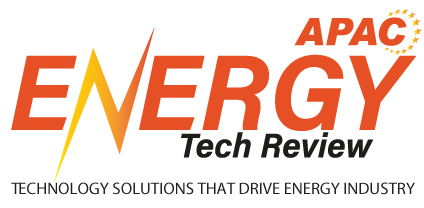 James Wagoner, CEO
James Wagoner, CEO
Addressing this gap, Joule Case is revolutionizing portable power solutions with a focus on flexibility and accessibility. As a leading energy provider in the green sector, Joule Case is transforming how businesses and organizations across North America access and utilize portable, clean electricity. Through innovative battery systems and scalable solutions, Joule Case is reshaping the portable energy landscape to meet the needs of smaller, decentralized applications.
The Power of Flexibility
At the core of Joule Case’s philosophy is a commitment to adaptability and customization. Unlike traditional, one-size-fits-all portable power solutions, Joule Case offers a modular platform tailored to meet the specific demands of diverse applications. Whether powering construction sites, music festivals, food trucks, or emergency response efforts, their solutions deliver convenience and reliability while reducing dependency on fossil fuels.
James Wagoner, CEO of Joule Case, highlights the importance of this customer-centric approach:
“We sit down with our customers and spend a lot of time understanding their situation—their time of use, how long they need it for, and what they’re really trying to power. All of that gets factored into how we build their system.”
By tailoring their systems to each client’s specific needs, Joule Case ensures its solutions are not only environmentally friendly but also economically viable. This right-sizing approach eliminates unnecessary costs and waste, making clean energy more accessible.
Breaking Down Barriers to Clean Energy
Joule Case tackles one of the greatest challenges in the transition to clean energy—the perceived complexity and cost of new technologies. Its solutions are designed to be accessible and user-friendly, requiring no technical expertise from clients. The company has invested heavily in research and development, enabling customers to focus on their core business while enjoying the benefits of clean, reliable power.
From Small-Scale to Enterprise Solutions
Joule Case’s product portfolio includes systems scalable from as small as 3,000 watts to over a megawatt of portable power. This scalability is made possible through what Wagoner calls a “Lego block system,” which allows for seamless expansion and customization.
For larger enterprises, Joule Case offers solutions like the Zeus and Atlas systems. The Zeus system provides flexible AC power outputs, while the Atlas focuses on DC power, making it ideal for electric vehicle charging and battery replenishment. These systems are powerful enough to replace traditional diesel generators, offering clean, quiet energy for events, construction sites, and disaster relief operations.
Recognizing that capital purchases can be a challenge, Joule Case also provides flexible acquisition options, including leasing and rental programs. In many cases, the cost of leasing a Joule Case system—energy included— is lower than what clients previously spent on diesel fuel and generator maintenance. This cost-effectiveness, combined with environmental benefits, makes the transition to clean portable power not just an ethical choice but a smart business decision.
 Environmental and Health Impact
Environmental and Health ImpactBeyond technological innovation, Joule Case is driving significant environmental and public health improvements. Traditional diesel generators are notorious for emitting harmful pollutants, as they lack the pollution controls found in modern vehicles. By replacing diesel generators with clean battery power, Joule Case not only reduces carbon emissions but also improves air quality, particularly for those working near portable power equipment.
“Every time we sell another system or install another clean energy solution, it means fewer diesel generators, less carbon in the atmosphere, and significant health benefits for people working alongside these critical portable power needs,” says Wagoner.
Real-World Applications
Joule Case’s solutions have proven invaluable across a variety of use cases, from supporting school lunch programs with clean power for delivery vehicles to enabling municipalities to charge electric bus fleets.
 In one notable instance, a top 50 metropolitan municipality faced a major challenge after purchasing a fleet of electric buses—its existing infrastructure couldn’t support the required charging capacity. Joule Case provided portable power solutions that allowed the municipality to operate its fleet without costly and time-intensive infrastructure upgrades.
In one notable instance, a top 50 metropolitan municipality faced a major challenge after purchasing a fleet of electric buses—its existing infrastructure couldn’t support the required charging capacity. Joule Case provided portable power solutions that allowed the municipality to operate its fleet without costly and time-intensive infrastructure upgrades.The Future of Portable Power
Joule Case continues to write success stories as it meets the growing demand for clean energy solutions. The company remains laser-focused on end-user applications rather than just battery chemistry, setting it apart in the crowded energy innovation space.
We sit down with our customers and spend a lot of time understanding their situation, their time of use, how long they need it for, and then what they’re really trying to do, what they’re trying to power. And, all of that gets factored into how we build that system
Looking ahead, the increasing availability of batteries and the growth of domestic battery manufacturing in the United States are expected to make Joule Case’s systems even more competitive with diesel generators in terms of both cost and performance.
As businesses and organizations seek ways to reduce their carbon footprints and improve operational efficiency, Joule Case’s portable power solutions provide a compelling answer. With a commitment to innovation, customer service, and environmental stewardship, Joule Case is not just powering devices—it’s powering change.





